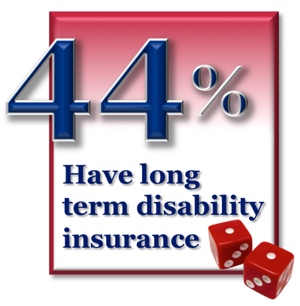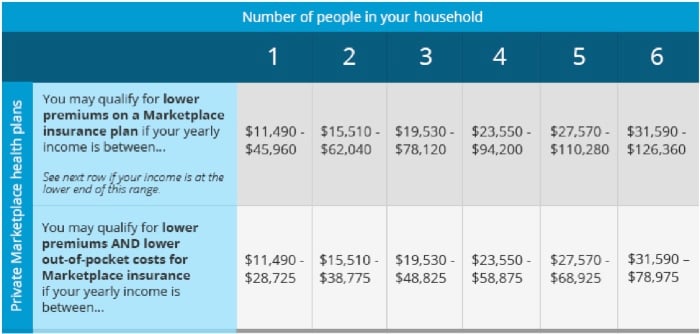 Most medical statistics that you read or hear about are not designed to brighten your day.
Most medical statistics that you read or hear about are not designed to brighten your day.
Well, here’s another one: Once you reach the Medicare-eligible age of 65, you have a seven in ten chance of needing long-term care at some future point. A good long term health care insurance policy can provide both peace of mind and valuable protection against the high cost of care.
Long term care may be provided be at home, in a skilled nursing facility, or in assisted living. It is a surprise to many that the average annual cost of care in a nursing home is a whopping $81,000 for a semi-private room or $90,500 for a private room. Those are national averages, but you can expect similar costs in Philadelphia, Allentown, Reading, Lancaster, Harrisburg, Pittsburgh and elsewhere throughout Pennsylvania.
“Well, so what?” You’re probably thinking. “I might have underestimated the cost of long-term care, but my Medicare will be there to foot the bill.” Well, maybe not
Medicare Falls Short When It Comes to Long-Term Care
It's wise to consider long-term care insurance to supplement Medicare. Here's why: If you are recovering from an acute illness, condition or injury, Medicare will cover the services performed by a skilled medical professional. Your physician must certify to Medicare that these specialized services are necessary and that you are required to be housebound to receive these services. Any custodial care--bathing, eating, dressing, etc.--will be covered by Medicare only if the care accompanies your need for skilled acute care and is concurrent with it.
If you require long-term care in a nursing facility, Medicare will pay at least a portion of your care for up to 100 days, but only after you have satisfied a hospital stay of at least three days and you still need daily medical attention. For instance, physical therapy following a joint replacement or wound care after surgery would qualify.
Note: Medicare will cover 100% of your full costs for the first 20 days only. You are responsible for a co-payment of $157.50 per day on days 21 through 100. If you have Medicare Supplement insurance, it will pick up this co-payment. After 100 days of skilled nursing care, you are on your own for all costs.
Why the confusion over Medicare?
Much of the misunderstanding arises because Medicare helps to cover certain services at home, but only if these services are medically necessary due to an acute medical need. But Medicare specifically excludes from coverage custodial care from chronic and disabling illnesses. As previously noted, custodial care refers to ongoing assistance with the activities of daily living such as bathing, eating, dressing and toileting. Skilled acute care and custodial care are decidedly different, yet skilled nursing facilities and home care agencies provide each type of care, which just adds to the confusion.
What about Medicaid?
People often do not distinguish between Medicaid and Medicare. Medicaid does cover 100% of long-term care custodial costs within a state licensed and certified Medicaid nursing facility. But Medicaid is a program for individuals and families with low income and insufficient resources to pay for health care. Additional confusion comes from not knowing this distinction.
You are responsible for your health care
Long term care can deplete your assets and shift the burden to your loved ones. You can ease these costs by properly planning for your future long-term care insurance needs. Doing so will help to preserve your savings and assets while providing you with options for the type of care that best meets your needs, whether it’s assisted living or in-home care.
Contact Us for Help in Evaluating Your Long-Term Care Insurance Needs
 Seek professional assistance before planning for your long-term care. There are a variety of policies from which to choose, from traditional long-term care insurance to hybrid plans that will return your premium should you not need care. There are also decisions to be made within each policy type that may require expert advice.
Seek professional assistance before planning for your long-term care. There are a variety of policies from which to choose, from traditional long-term care insurance to hybrid plans that will return your premium should you not need care. There are also decisions to be made within each policy type that may require expert advice.
To learn more about long-term care insurance, contact American Insuring Group online or call us at (800) 947-1270 or (610) 775-3848. Call or click today to get started!



 Bill is 50-year-old department manager for a mid-sized manufacturer. Even though he has never been seriously ill and has a clean family health history, he was recently told that he has cancer.
Bill is 50-year-old department manager for a mid-sized manufacturer. Even though he has never been seriously ill and has a clean family health history, he was recently told that he has cancer. Get the Right Disability Insurance Coverage
Get the Right Disability Insurance Coverage Do you live under a rock? No? Then it’s pretty safe to say that you’ve heard about the Affordable Care Act (ACA) – Also known as Obamacare - that was signed into law in March 2010.
Do you live under a rock? No? Then it’s pretty safe to say that you’ve heard about the Affordable Care Act (ACA) – Also known as Obamacare - that was signed into law in March 2010.  Get Help - Find the Right Health Insurance for Your Small Business
Get Help - Find the Right Health Insurance for Your Small Business
 Our world is changing. The “typical” family has changed and people are living much longer due to advances in medicine. These two ingredients have created a new generation – known as the Sandwich Generation. Gone are the days when a “typical” family consisted of a working husband, a stay-at-home wife and a couple of children.
Our world is changing. The “typical” family has changed and people are living much longer due to advances in medicine. These two ingredients have created a new generation – known as the Sandwich Generation. Gone are the days when a “typical” family consisted of a working husband, a stay-at-home wife and a couple of children.
 Let's Get Honest About Disability Insurance
Let's Get Honest About Disability Insurance The average long-term disability claim is 34.6 months (just shy of 3 years!). If you rely on your paycheck (and who doesn't?) you should have disability insurance.
The average long-term disability claim is 34.6 months (just shy of 3 years!). If you rely on your paycheck (and who doesn't?) you should have disability insurance.  How Will the Affordable Care Act Affect Small Business Health Insurance Costs?
How Will the Affordable Care Act Affect Small Business Health Insurance Costs?
 Do you believe that your employees are one of your most valuable assets? Do you think of your employees as an investment rather than an expense?
Do you believe that your employees are one of your most valuable assets? Do you think of your employees as an investment rather than an expense?  Contact American Insuring Group
Contact American Insuring Group There is a lot of uncertainty these days regarding what is required under the Affordable Care Act, also known as ObamaCare. Businesses and individuals alike are concerned they may be penalized or miss out on important information needed to keep their
There is a lot of uncertainty these days regarding what is required under the Affordable Care Act, also known as ObamaCare. Businesses and individuals alike are concerned they may be penalized or miss out on important information needed to keep their 

 Do you want to become a burden to your family? Of course not.
Do you want to become a burden to your family? Of course not. If you want to ensure that you can live independently and not become a burden to your family and friends in the event that you need care over a long period of time, give us a call at
If you want to ensure that you can live independently and not become a burden to your family and friends in the event that you need care over a long period of time, give us a call at  According to a May 2013 report by the non-profit Council for Disability Awareness (CDA), there is a sharp mismatch between the high value employees place on their ability to earn a living vs. their financial preparedness to handle a disability that would threaten their income as evidenced by having adequate levels of disability insurance.
According to a May 2013 report by the non-profit Council for Disability Awareness (CDA), there is a sharp mismatch between the high value employees place on their ability to earn a living vs. their financial preparedness to handle a disability that would threaten their income as evidenced by having adequate levels of disability insurance.



